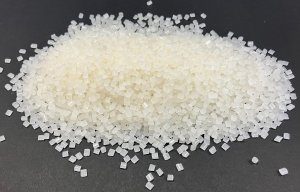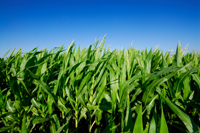
Faster biodegrading PLA
Teijin Limited has announced that it has begun producing its proprietary heat-resistant bio-plastic Biofront at a demonstration plant in Matsuyama, Ehime Prefecture. The plant was originally Toyota Motor Corporation’s polylactic acid demonstration plant. Following the acquisition of the plant by Teijin in June 2008, it was migrated to Matsuyama and converted into a demonstration plant for Biofront with additional proprietary processes required for producing the

24th September 2009
Innovation in Textiles
|
Tokyo
 Teijin Limited has announced that it has begun producing its proprietary heat-resistant bio-plastic Biofront at a demonstration plant in Matsuyama, Ehime Prefecture. The plant was originally Toyota Motor Corporation’s polylactic acid demonstration plant. Following the acquisition of the plant by Teijin in June 2008, it was migrated to Matsuyama and converted into a demonstration plant for Biofront with additional proprietary processes required for producing the heat-resistant bio-plastic.
Teijin Limited has announced that it has begun producing its proprietary heat-resistant bio-plastic Biofront at a demonstration plant in Matsuyama, Ehime Prefecture. The plant was originally Toyota Motor Corporation’s polylactic acid demonstration plant. Following the acquisition of the plant by Teijin in June 2008, it was migrated to Matsuyama and converted into a demonstration plant for Biofront with additional proprietary processes required for producing the heat-resistant bio-plastic.
Teijin has been manufacturing Biofront at a 200-ton/annum pilot plant in Iwakuni, Yamaguchi Prefecture, where it also conducts related research and development. The addition of the demonstration plant raises the production capacity to about 1,000 tons, which will enable the company to begin developing a full-scale market for Biofront. Teijin plans to increase the annual capacity of Biofront even further to 5,000 tons by fiscal 2011, and eventually to tens of thousands of tons.
While the Iwakuni pilot plant produces Biofront from lactide, a compound produced from lactic acid obtained by fermenting starch extracted from plant matter, the new demonstration plant can start from the earlier lactic acid stage, affording more flexibility in the production of varied raw materials.
Biofront, which was first developed in 2006 and launched in the following year, is the world’s first mass-produced stereocomplex PLA, made with plant-based Poly-L-lacticacid polymer (conventional polylacticacid polymer) and their enantiomer poly-D-lacticacid polymer. This highly stable stereocomplex structure, based on Teijin’s polymer technology, has made possible the melting point that is over 40°C higher than that of poly-L-lacticacid polymer, putting Biofront’s heat resistance on a par with oil-based polybutylene terephthalate (PBT). Recently, Teijin has successfully upgraded Biofront with substantially improved resistance to hydrolytic degradation in hot and humid conditions, creating new opportunities for the plant-based material’s use in high-heat and high-humidity applications, such as automotive and electronics.

Business intelligence for the fibre, textiles and apparel industries: technologies, innovations, markets, investments, trade policy, sourcing, strategy...
Find out more